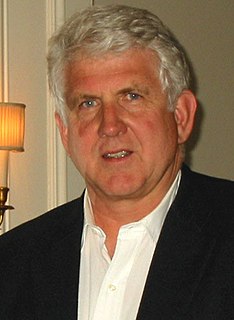A Quote by Ben Horowitz
The hardest thing about starting a company and running a company is, there's just so many expectations on you, and there are so many people who have things that they want you to do. It's a lot like life about that.
Related Quotes
Obviously solving the education problem is big and complex, and there's already so many failings, but coding is the new fluency. This is the most valuable skill of this century. If you want to be a founder of a company, and not even just a tech company, but like a founder of a company, because I'm telling you software is going to play a role.
Strangely, from a life-change standpoint, I sold the company I was running and got divorced in the same month. And so there I was, at home, and I'm not the CEO. I took a few months thinking about what I wanted to do. When the first call came in about running a company owned by Deutsche Telekom, I thought it was laughable and really not something I'd do. I took the meeting mainly because the headhunter I knew. At first I thought I was just helping her fill out the roster, but then I dug into it.
A company is a multidimensional system capable of growth, expansion, and self-regulation. It is, therefore, not a thing but a set of interacting forces. Any theory of organization must be capable of reflecting a company's many facets, its dynamism, and its basic orderliness. When company organization is reviewed, or when reorganizing a company, it must be loked upon as a whole, as a total system.

































